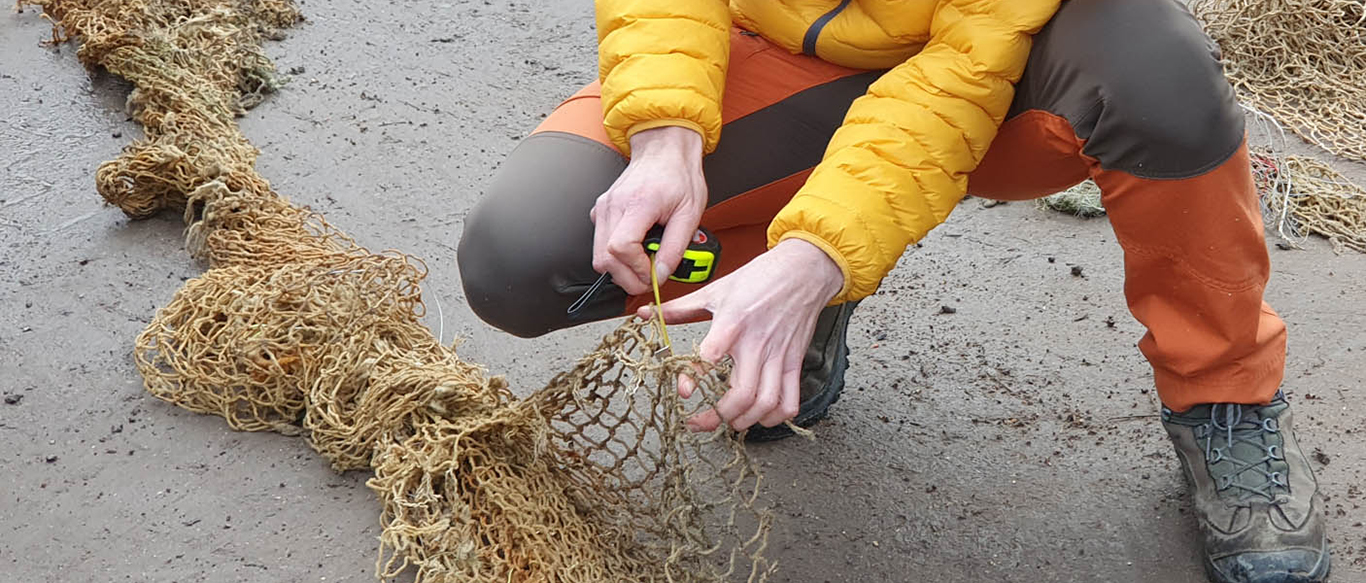Scientific analysis of ghost nets undertaken in the North and Adriatic Seas
>Ghost Diving and Healthy Seas in collaboration with Wageningen University & Research embarked on a pilot initiative, to determine the ecological impact and sources of ghost nets recovered by volunteer divers in the North and the Adriatic Seas. A better understanding of these issues will ultimately lead to more effective cleanup strategies and in preventing fishing nets from becoming ghost nets in the future.
Globally, it is estimated that 640,000 tons of fishing gear end up in the seas and oceans each year. In most cases they are made of plastic and take hundreds of years to decompose, thus continually accumulating. They are called ghost nets because they appear almost invisible underwater, catching and killing marine life without human involvement. While most lost or discarded fishing nets pose a great threat for plants and animals, some may also act as an important habitat for marine life.
Volunteers of the Ghost Diving Foundation have been involved in the retrieval of lost fishing gear in the North and Adriatic Seas for many years. In these heavily fished waters, divers encounter lost or discarded fishing gear on almost every object they dive (wrecks, lost cargo, or reefs).
Wouter Jan Strietman, researcher at Wageningen University & Research: “Up to now, the ecological impact and sources of ghost nets have received relatively little research attention. We are happy to support Ghost Diving and Healthy Seas by contributing our expertise to determine the source, age and ecological impact of fishing nets found on wrecks.”
Pascal van Erp, Ghost Diving Founder: “With the results coming out of this project we are aiming at improving our cleanup protocol and to further contributing to the dialogue with the fisheries sector around solutions tackling the ghost fishing phenomenon.”
With the United Nations Decade of Ocean Science for Sustainable Development having kicked off in 2021, we are eager to contribute through their activities toward strengthening the sustainable management of the oceans for the benefit of the planet and humanity.
The initiative will commence in 2021 and will publish its results in 2022.

